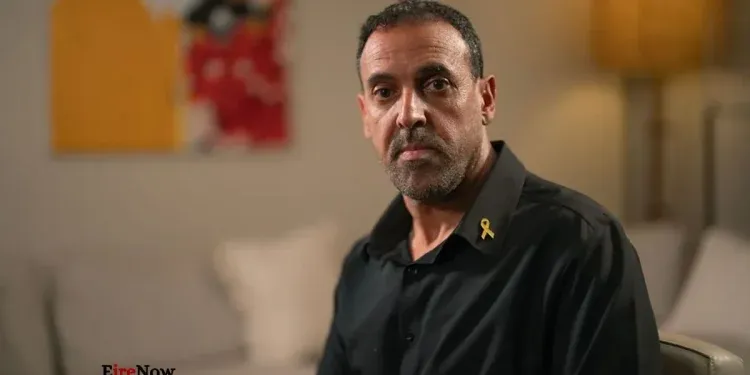TEL AVIV: Eli Sharabi, a former Israeli hostage whose British-Israeli wife and two daughters were killed during the 7 October attacks, has spoken out about his 491-day ordeal and his deep fear that the latest peace plan to end the Israel-Hamas fighting will fail.
In a rare interview, Mr. Sharabi, 53, who was held for over 16 months in Hamas tunnels beneath Gaza, revealed that the lives of the estimated 20 remaining living hostages are severely at risk due to the ongoing conflict.
A Demand for Action and Peace:
Mr. Sharabi called on US President Donald Trump to “finish the job” by using his influence to secure the release of the remaining hostages, as well as the bodies of the 28 believed to have died, including his brother Yossi Sharabi, whose remains are still held by Hamas. He stressed the need for his friend, 24-year-old Alon Ohel, who was held captive with him, to be freed.
He directly addressed his former captors, urging Hamas to sign the peace deal “for their people…and the Middle East,” adding that “War is wrong and awful for both sides.” He concluded with a poignant message: “We have to keep hope.”
The Trauma of Release:
Mr. Sharabi, the former business manager of Kibbutz Be’eri, was released in February 2025. Tragically, it was only upon his return to Israel that he discovered his wife, Lianne (born in Bristol, England), and daughters, Noiya (16) and Yahel (13), had been shot dead on 7 October shortly after he was abducted.
“When they were not there to greet him,” he realized “the worst scenario happened,” the report stated. The Sharabi family had hidden for hours in their safe room in Kibbutz Be’eri, a community that saw nearly one in 10 of its 1,000 residents killed or taken hostage.
Ordeal in Captivity:
Recounting the day of the attack, Mr. Sharabi said he shouted “I’ll be back” to his girls as he was dragged away, the last time he saw them. He described being taken to a mosque in Gaza where he was lynched by Palestinian civilians, including children.
For nearly all of his captivity, he was tied up, first with ropes, then with iron chains that caused him to pass out from pain. He endured inhumane conditions in Hamas’s tunnel network, including months in cramped quarters with little sanitation.
“Starvation was the worst thing,” he recalled, detailing how they were reduced to one meal a day—often just one and a half pieces of pita bread—and had to “eat the crumbs on the carpet.” He lost over four stone (25kg) during his confinement.
Despite the brutality, which included broken ribs from a beating, Mr. Sharabi’s will to survive was unbreakable. “It was very tough but I love life,” he stated, adding, “I promised my girls that I’d come back to them, and they love life.”
The Proposed Peace Deal:
The 20-point peace plan, recently agreed upon by President Trump and Israeli Prime Minister Benjamin Netanyahu, calls for an immediate ceasefire and the release of all hostages within 72 hours. In exchange, Israel would release hundreds of detained Gazans and Palestinian prisoners. However, Hamas officials have indicated they are likely to reject the deal, increasing fears that the window for a diplomatic solution is closing.







